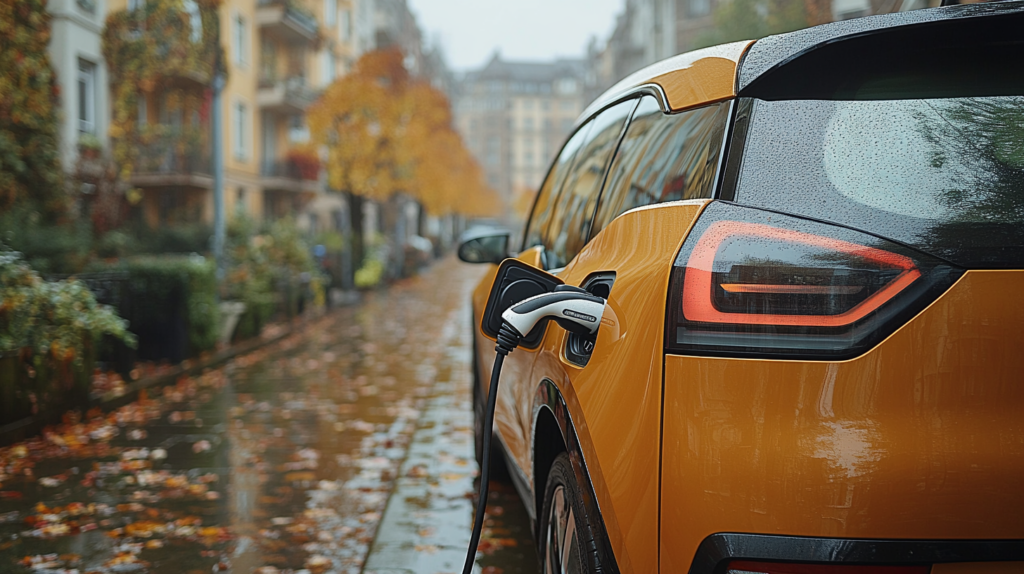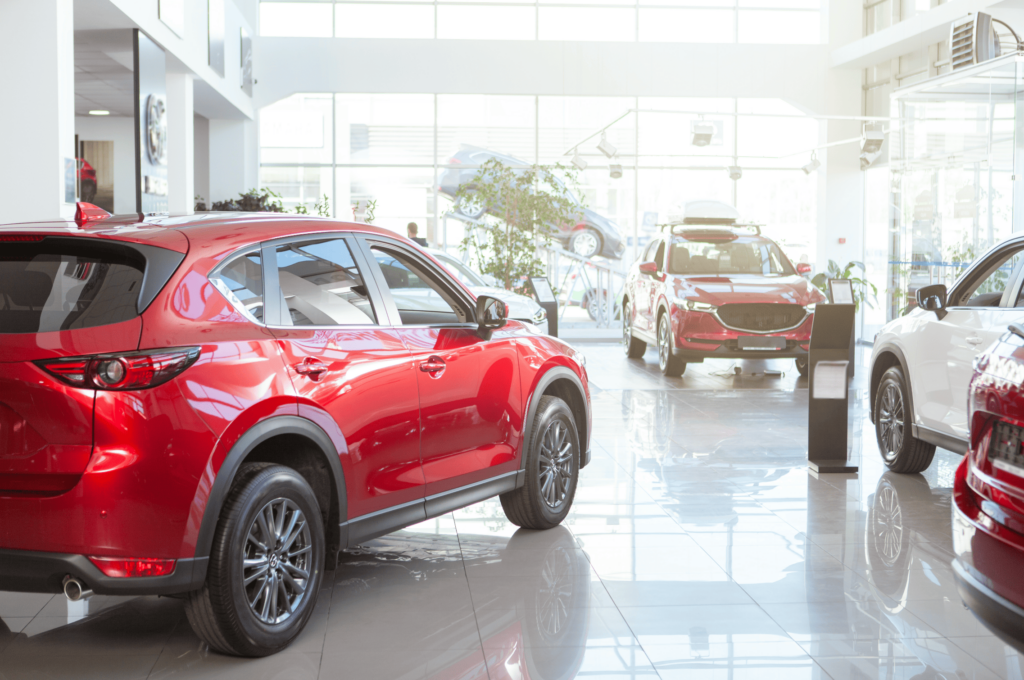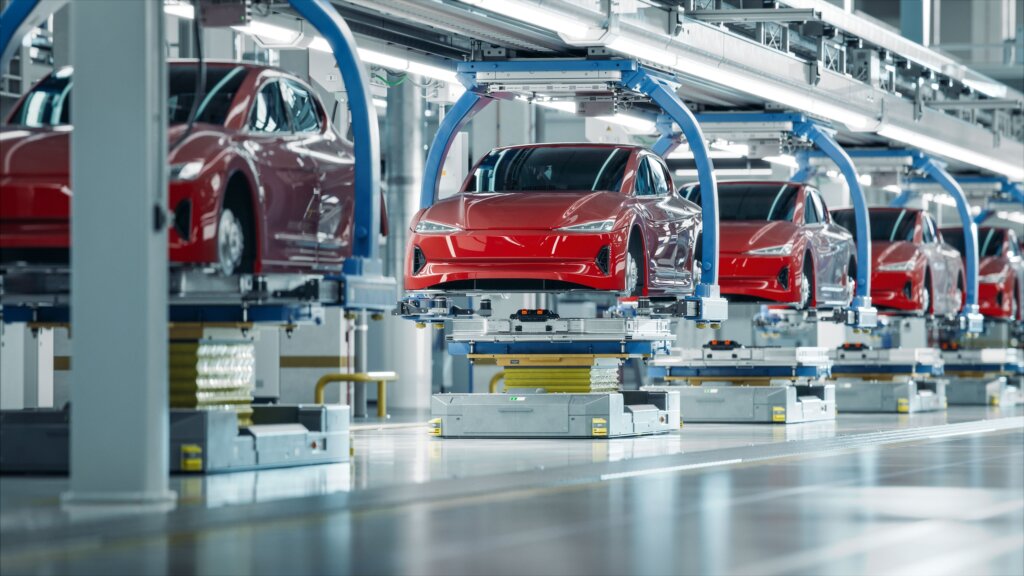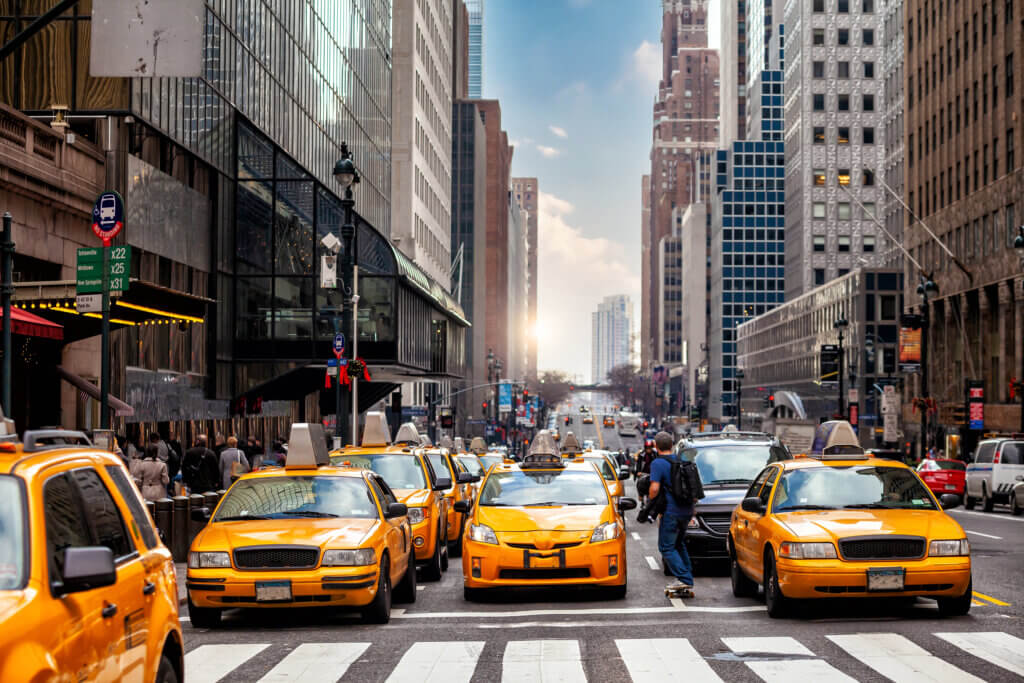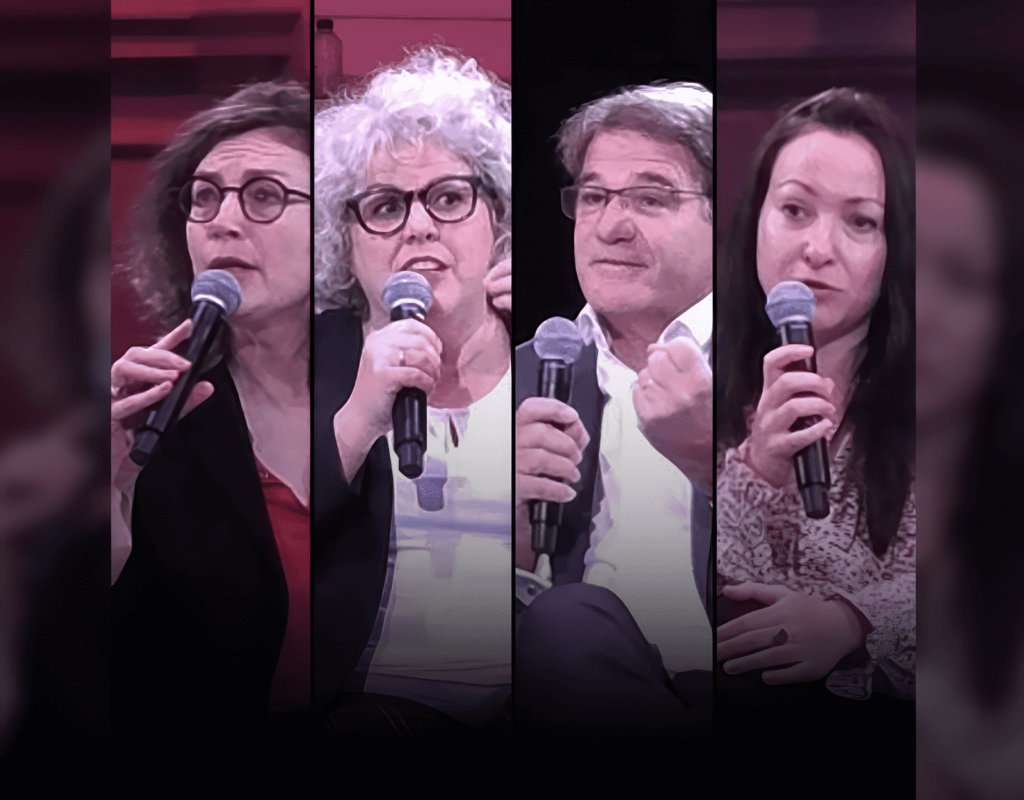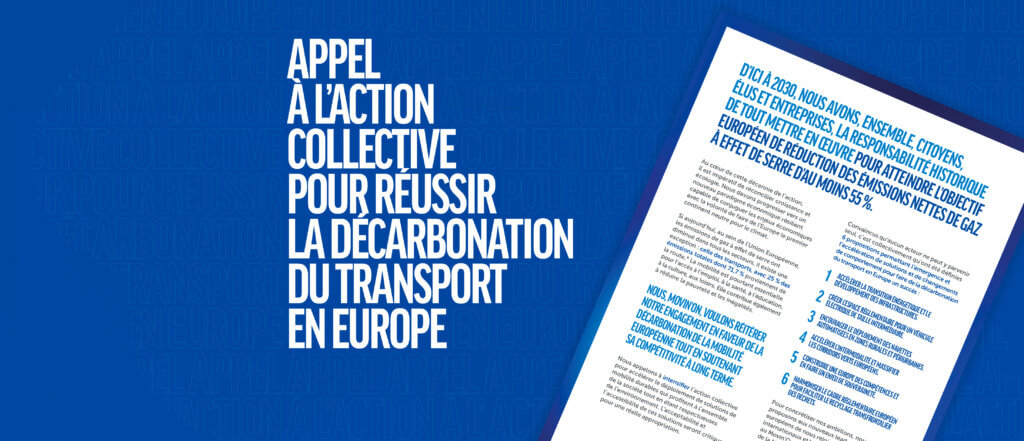EV Setbacks: Fires, Two Recalls and a Strike
“High-speed rail is coming to America, and working people should take notice. The Biden Administration is planning to use funding from the Bipartisan Infrastructure Law to construct multiple high-speed rail lines,” transport leaders say after years of trying and failing to get high-speed trains moving across the United States.
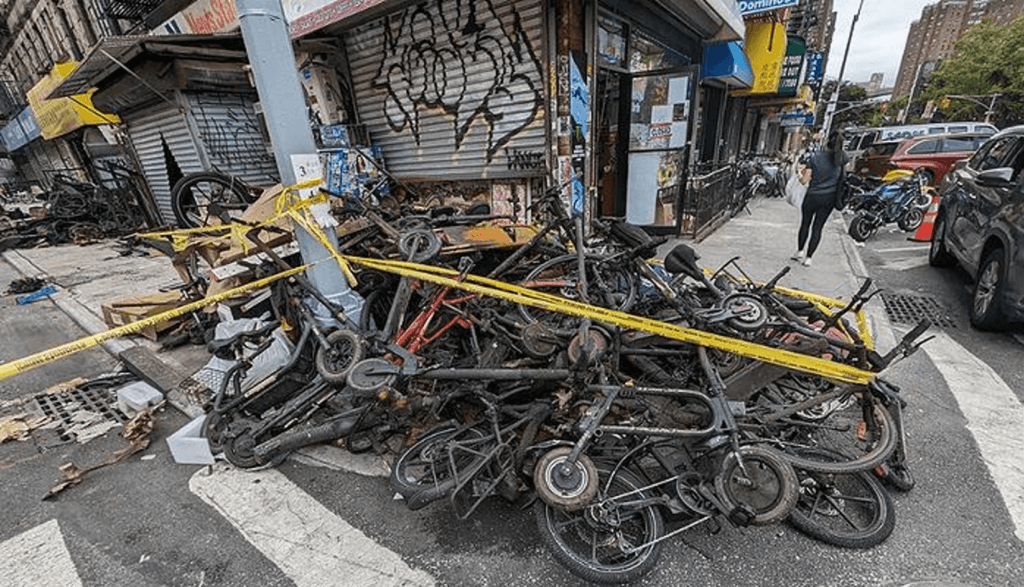
During the summer of 2023 a New York City resident purchased a new electric car, a $70,000 Audi e-tron that he loves. He had planned to charge it in the garage of the condo where he lives, but without warning in August his Homeowner Association/condo board banned all EVs from the garage due to “fire risk.”
He posted the details of the ban online, writing, “When I pointed out that all the ICE [internal combustion engine] cars literally have tanks full of liquid explosive in them during our town hall, I was showered in all manner of FUD [fear, uncertainty and doubt]. … I have no intention of going back to a gas car.”
This EV-owning resident lives in a Trump building, explaining, “Condo board is controlled by him as sponsor, and so is management. This will be fun.”
By “This” the resident means the conflict over how to keep electric vehicles from catching fire, endangering everything and everyone in the vicinity, and raising insurance rates sky-high on the way to a net-zero economy in which electric vehicles replace the ICEs now emitting planet-destroying greenhouse gases into the atmosphere.
But New Yorkers are worried. There have been 13 deaths in the city caused by EV fires in the first seven months of 2023.
One fire in an exclusive high-rise building at 429 E. 52nd St. on the Upper East Side of Manhattan in November 2022 forced fire crews to conduct a daring roof rope rescue from the 20th floor, bringing two residents to safety, but at least 38 people were injured.
“The cause of the fire is a lithium-ion battery connected to a micro mobility device,” said Fire Department of New York (FDNY) Commissioner Laura Kavanagh from the scene. “I cannot emphasize enough the extraordinary work of our members this morning in unbelievably dangerous conditions.”
It was one of nearly 200 fires touched off by lithium-ion batteries that the FDNY investigated last year. But FDNY data shows that most of these fires are happening in modest apartment buildings or in single-family homes far from wealthy districts like the Upper East Side.
Today there are about 158,000 electric vehicles in the New York City metro region, about 27,000 EVs and 65,000 e-bikes in the city’s five boroughs, and analysts expect that number to increase tenfold by 2030, the “New York Times” reported in March.
Food delivery by quick, maneuverable e-bikes is popular. But delivery riders work long hours for low wages and can only afford the cheapest electric bikes with the cheapest batteries – the ones that most easily catch fire.
Still, the Trump building resident could prevail in his conflict due to a New York State law passed late last year that prohibits homeowners’ associations in the state from preventing the installation of electric vehicle charging stations on private property.
The measure is intended to make it easier for homeowners to install charging stations as New York seeks to transition to more renewable forms of energy and phase out gas-powered vehicles by the next decade.
New York is trying to reach the goal of 850,000 zero-emission vehicles within the next three years. All passenger vehicles sold in New York by 2035 must be zero emissions under a previous law signed by Governor Hochul.
But to reach that goal, infrastructure changes, such as access to charging stations and how power is delivered to them, must be put in place in only six years plus a few months. Meanwhile, more and more buildings are simply banning electric bikes.
A reader from Sweden has a different take on the EV fire situation, posting this comment, “Well here in Sweden the Electrical authorities are recommending everyone to install charging boxes just because of too many electrical fires. With that you gain surge current, ground fault, short circuit and over heating protection etc depending on the model. So here where we have A LOT of EVs vs the US, every Homeowner Association “HOA is forbidding using a granny charger.”
A 13A charging cable, known as a granny charger or granny cable, is a common term for the In Cable Control Box cable that should be supplied with electric cars when purchased new.
Hyundai and Kia Recall 3.3 Million Cars on Fire Concerns
These fires are a real concern as demonstrated by the actions of Korean automakers Hyundai Motor America and Kia America this week. Both companies have issued “park outside” recalls for a total of more than 3.3 million EVs due to fire risk.
Until these recalled vehicles have been repaired, the manufacturers say the safest place to park them is outside and away from homes and other structures.
“Fires can occur whether the vehicle is parked and turned off or while driving,” warns the National Highway Transportation Safety Administration (NHTSA) in its notice of the recalls.
The automakers say internal brake fluid leaks can cause an electrical short that could lead to a fire. Kia has reports of at least 10 confirmed fires and melting incidents, while Hyundai says it has reports of 21 fires and 22 other thermal incidents since 2017 related to the recall, including visible smoke, burning, and melting.
Neither automaker reports any crashes, injuries or fatalities linked to the recalls, the NHTSA said.
Kia America’s recall covers 1.73 million Borrego, Cadenza, Forte, Sportage, K900, Optima, Rondo, Soul Rio, and Sorento vehicles from model years 2010 through 2017.
Hyundai is recalling 1.64 million Accent, Azera, Elantra, Equus, Genesis Coupe, Santa Fe, Santa Fe Sport, Sonata Hybrid, Tucson, Tucson Fuel Cell, Veracruz, and Veloster vehicles from model years 2011 through 2015.
The vehicles’ anti-lock brake system (ABS) modules could leak brake fluid internally and cause an electrical short. This could result in significant overcurrent in the ABS module, increasing the risk of an engine compartment fire while driving or parked, Kia warned.
Hyundai plans to notify owners to bring their vehicles to a dealer to replace the ABS module fuse. Kia is still working on a remedy, NHTSA says.
Vehicle owners can visit NHTSA.gov/recalls and enter their 17-digit vehicle identification number to see if their vehicle is under recall. If it is, vehicle owners should call their nearest dealership immediately to schedule a free repair when a repair is available.
Owners can also download NHTSA’s SaferCar app. Enter the vehicle, tires, car seat, or other vehicle equipment, and the app will push a notification if a recall is issued.
These recalls affect older vehicles, and Hyundai has implemented a new policy that supplies a complimentary charger and installation assistance for its 2023-2024 electric vehicles.
To help encourage EV-curious customers to go electric, Hyundai is now offering customers who buy or lease certain Hyundai EVs a complimentary ChargePoint Home Flex Level 2 charger and up to $600 off installation. For more information, visit http://www.hyundaiusa.com.
Toute l’actualité de Movin’On
dans votre boîte mail
Auteur
Partager
Tweets de @movinonconnect
Movin'On 2035 TODAY EP02 - Circular Economy & Competitivity
Movin’On 2035 TODAY EP01 – Fair Mobility for All https://x.com/i/broadcasts/1yNxagBrWZbGj
✨ THAT'S A WRAP!
Movin'On Summit 2024 has just concluded in Brussels!
More than 350 leaders and experts in sustainable mobility gathered to exchange ideas, collaborate, and share their vision for desirable and decarbonised mobility in Europe. Together, we explored ways to build…
🔴 Live from #MovinOnSummit2024
@AshaSumputh has just invited Denis Machuel, CEO at @AdeccoGroup and Florent Menegaux, President of the @Michelin Group & President of Movin'On
L’actualité de la mobilité durable
Découvrez les dernières tendances, des analyses thématiques et nos prochains rendez-vous

